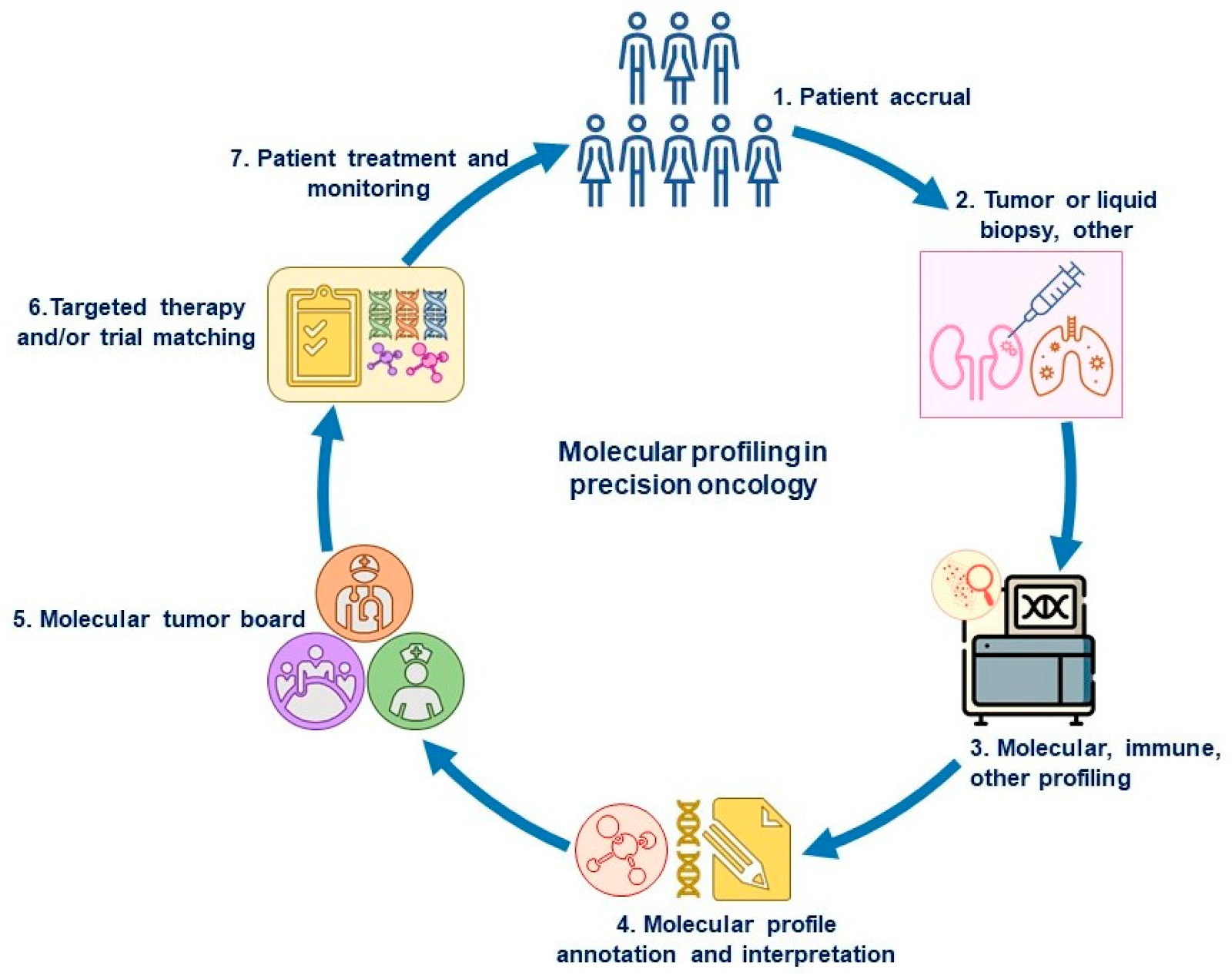Precision Oncology: A New Era of Personalized Cancer Care
A Brief Overview
Precision oncology is a transformative approach to cancer treatment that leverages genomic and molecular profiling to tailor therapies to the unique characteristics of each patient’s tumor. Unlike traditional cancer treatments, which often follow a one-size-fits-all model, precision oncology identifies specific genetic mutations or biomarkers driving cancer, allowing for highly targeted and effective treatments.
The global market for precision oncology is growing, with a projected Total Addressable Market (TAM) of $85 billion by 2030, driven by a Compound Annual Growth Rate (CAGR) of 12.1% from 2023 to 2030. This growth is fueled by advancements in genomic sequencing technologies, increased adoption of biomarker-driven therapies, and a deeper understanding of tumor biology.
What Makes Precision Oncology Important?
Precision oncology is revolutionizing cancer care, and it offers significant benefits over traditional approaches. Here’s why it’s critically important:
Targeted Therapies: Precision oncology allows for treatments that specifically target cancer-driving mutations, minimizing damage to healthy cells and reducing side effects compared to chemotherapy or radiation.
Improved Patient Outcomes: By aligning treatments with the genetic and molecular characteristics of tumors, precision oncology improves treatment efficacy, leading to higher response rates and longer survival times for patients.
Early Detection and Prevention: Advances in precision oncology are extending beyond treatment to include early detection and prevention strategies. Liquid biopsies and genetic screening can identify cancer at its earliest stages or even predict predispositions, enabling timely intervention.
Reduction in Healthcare Costs: While initial diagnostics in precision oncology can be costly, the targeted nature of treatment reduces waste and avoids ineffective therapies, ultimately lowering overall healthcare expenditures.

Key Players and Emerging Startups in Precision Oncology
Several startups are leading innovation in precision oncology, offering novel solutions for diagnosis, treatment, and monitoring. Here are some key players to watch:
Freenome: Freenome is shaping early cancer detection with its multiomics platform, integrating genomic, proteomic, and epigenomic data to identify cancer at its earliest stages. Their focus on liquid biopsy technology is setting a new standard in preventive oncology.
Strata Oncology: This startup specializes in tumor profiling and matching patients with biomarker-driven clinical trials. By facilitating access to personalized treatments, Strata Oncology aims to bridge the gap between diagnostics and therapeutics.
Caris Life Sciences: Focused on comprehensive molecular profiling, Caris Life Sciences provides insights into the molecular underpinnings of cancer, guiding precision treatment decisions. Their AI-driven platform also integrates patient data for ongoing monitoring.
Paige: Paige is an AI-powered pathology company that uses digital imaging to identify and classify cancer subtypes with accuracy. Their solutions aim to improve diagnostic precision, a cornerstone of personalized cancer care.
These companies demonstrate the diverse applications of precision oncology, from diagnostics and treatment to monitoring and prevention, which showcases the vibrant ecosystem of startups driving this field forward.
What’s Next in Precision Oncology?
The future of precision oncology is exciting, with advancements poised to make cancer care more personalized, effective, and accessible. Here’s what’s on the horizon:
Integration of Multi-Omics Data: Beyond genomics, precision oncology will increasingly incorporate multi-omics data, including proteomics, transcriptomics, and metabolomics. This comprehensive approach will deepen our understanding of cancer biology and enable even more tailored therapies.
Expansion of Liquid Biopsy Technology: Liquid biopsies are transforming cancer diagnostics, offering non-invasive methods to detect and monitor tumors through blood samples. As this technology becomes more refined, startups focusing on liquid biopsies will drive early detection and treatment monitoring.
Democratization of Access: One of the major challenges in precision oncology is accessibility. Future innovations, including cost-effective diagnostic tools and decentralized clinical trials, aim to bring precision care to underserved populations.
Personalized Immunotherapy: The intersection of precision oncology and immunotherapy is set to revolutionize cancer care. Startups developing personalized cancer vaccines and T-cell therapies are at the forefront of this exciting frontier.
Precision oncology represents the future of cancer treatment, shifting the paradigm from generalized approaches to highly individualized care. With a robust pipeline of innovative startups leading advancements in diagnostics, therapeutics, and data analysis, the industry is primed for significant growth. As capital continues to fuel this transformative field, precision oncology will not only improve patient outcomes but also redefine what’s possible in the fight against cancer.
—————————————–
If you are a builder, investor or researcher in the space and would like to have a chat – please reach out to me at amit.k@thelotuscapital.com
